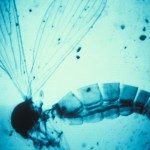About
Dengue is the most rapidly expanding, globally dominant arthropod-borne (arbo) viral disease. It affects close to 400 million people each year in more than 125 countries. Recent reports of autochtonous cases in Southern France and the USA further illustrate the potential for even greater expansion. Aedes aegypti mosquitoes are the primary vectors of dengue viruses (DENV) worldwide. Despite the critical role of competent arthropod vectors in arboviral emergence, the genes underlying variation in vector competence for DENV in natural Ae. aegypti populations are unknown. This project will take advantage of a genome-wide transcriptomic approach based on RNA-seq at the level of individual mosquito midguts to identify and validate candidate genes of Ae. aegypti vector competence for DENV, and proceed with their functional characterization. Our two specific aims are to identify and characterize (1) markers of genetic specificity and (2) predictors of viral replication. The proposed methodology combines field-derived mosquitoes and DENV isolates, high-throughput sequencing, sophisticated statistical analysis of gene expression data, functional assays, and concepts in population biology. Knowledge generated on the genetic basis of DENV-Ae. aegypti interactions will provide important insights into the molecular mechanisms of vector-virus compatibility and insect antiviral immunity. Ultimately, this knowledge may provide opportunities for disease prevention by identifying novel molecular targets to interrupt arbovirus transmission by mosquitoes.









